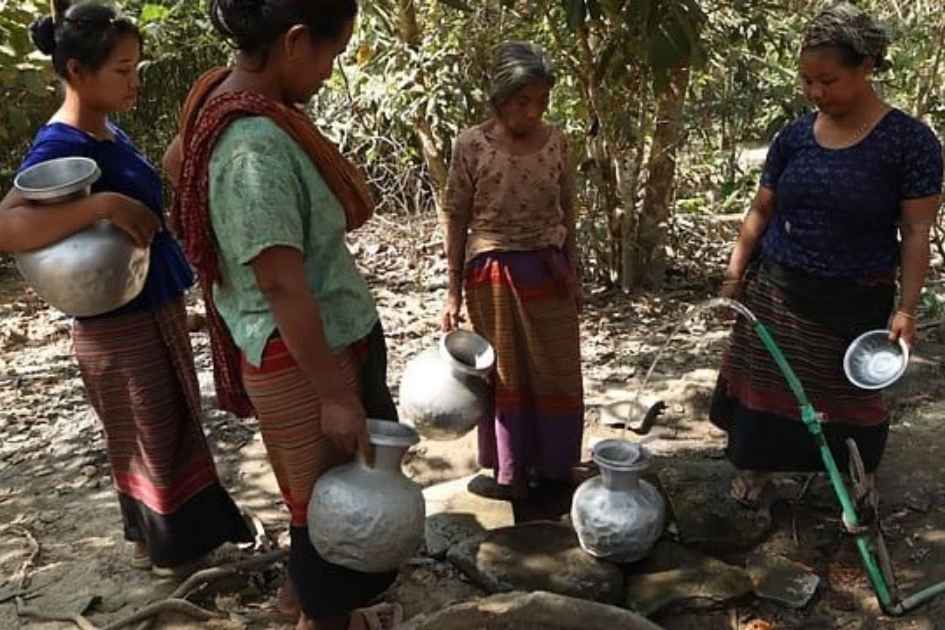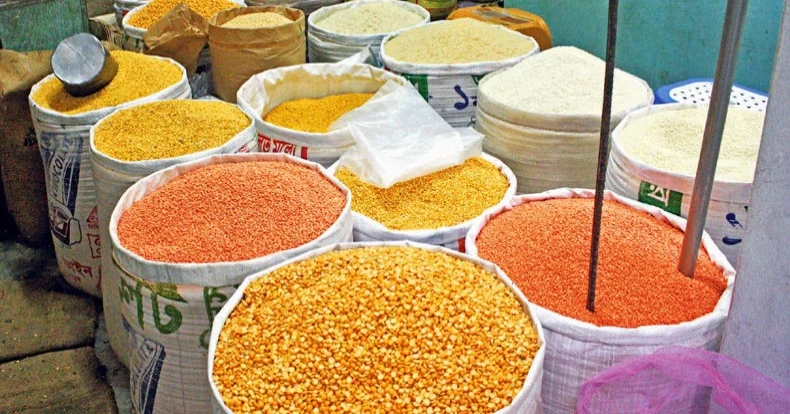Customs Over Constitution? How Social Norms Rob Women’s Land Rights

Inheritance Denied: How Culture and Customs Keep Bangladeshi Women Off Their Land
Across the globe, women face challenges in claiming their land rights. In many places, laws may say one thing, but society behaves differently. In countries like Bangladesh, India, and many others, the story is the same. Women technically have land rights. But in reality, they have often denied them.
Why does this happen? The answer lies in deeply rooted customs and social norms. These silent rules control how people behave. They often take priority over the written law. As a result, women remain landless or dependent. This article explores how that happens and what can be done.
What the Constitution Says
Most modern constitutions ensure equal rights for all. Bangladesh’s Constitution, for example, promises equality before the law. It says no one should be discriminated against based on gender. Women, like men, have the legal right to own, inherit, and control land.
Property laws also support this. The Muslim family law and Hindu inheritance law both contain provisions for women. Though imperfect, they at least offer a share. Yet, these rights often remain on paper.
Social Norms: The Invisible Barrier
So, what stops women from enjoying these rights? The problem lies in culture and customs. In many families, it is believed that women should not demand land. Asking for it is seen as selfish or greedy.
Daughters are told they already “take away” wealth through dowries. Sons are expected to take care of aging parents. So, they get the family land. This mindset is so common that many women do not even think they have the right to ask.

Inheritance and Gender Bias
In rural South Asia, a daughter claiming her share of land is rare. She risks being cut off from her family. She might be blamed for creating trouble. Sometimes, brothers threaten her. She may be asked to give up her right “voluntarily” to keep peace.
Some women are manipulated into signing away their land. Others don’t even know they are entitled to anything. Many parents divide land only among sons, assuming daughters won’t object. This continues from generation to generation.
The Economic Cost
This has serious effects. Without land, women stay poor. Land is not just soil—it is power. It provides food, income, and shelter. It builds long-term security. If a woman owns land, she can support her family. She can survive divorce or widowhood. She can escape abuse.
Without land, she depends on her husband or in-laws. She has less control over her life. This makes it harder for her to make decisions. Her voice is often ignored in the family and in society.
Women Farmers Without Land
Women form a major part of the agricultural workforce. A 2020 report from the Dhaka Tribune stated that 65% of agricultural labor in Bangladesh is performed by women. They plant, weed, harvest, and care for livestock.
Yet, most of these women do not own the land they work on. They are often considered helpers, not farmers. This denies them recognition and benefits.
Without land titles, they cannot access loans or subsidies. They are excluded from cooperatives and training programs. A study by IFPRI in 2024 revealed that only 23% of farmers receive agricultural extension services. Among them, marginal farmers—mostly women—had just 16% access, compared to 38% for large landholders.
This lack of support limits their income. It keeps their productivity low.
Widows and Divorcees Suffer Most
Widows are especially vulnerable. When a husband dies, his land usually goes to his sons or brothers. The wife may be pushed out of her home. She is told she can stay only if she remains quiet and obedient.
Divorced women suffer a similar fate. Many return to their parental homes. But even there, they are treated as outsiders. Without a share in family land, they remain dependent and powerless.
The Role of Local Leaders
Village elders and local leaders often play a key role in this. In many places, disputes over land are settled informally. These leaders may favor men. They encourage women to settle privately. They may say things like, “This is not how things are done here.”
Even if a woman goes to court, she may face delays and expenses. The system is slow and costly. Many give up halfway. Others are pressured by their families to withdraw the case.
Religion and Custom: A Complex Mix
It’s important to understand that religion is often mixed with custom. For example, Islamic inheritance law does give women a share, though smaller than men. Yet, in many places, even this is denied. In some Hindu families, daughters are not given anything.
People often pick and choose religious rules based on convenience. Cultural customs are passed down without question. Over time, they become stronger than the written law.
Urban Women Are Not Always Better Off
Even in cities, women face challenges. In urban families, the excuse is different. People say land is expensive. If the daughter is “well-settled,” she is asked to give up her share.
Brothers may promise to “help when needed” instead of giving land. Often, women agree because they want peace in the family. But these promises are rarely kept. And once the land is sold or inherited by others, it’s gone forever.
Education Helps, But Is Not Enough
Educated women are more likely to know their rights. But knowing is not the same as claiming. Family pressure, emotional blackmail, and fear of social shame still work as strong tools.
Even women with high-paying jobs often stay quiet. They don’t want to upset their parents or brothers. The emotional cost of demanding land is too high. So, the cycle continues.
Media and Narratives Matter
The stories we tell matter. In movies and TV dramas, women are often shown as givers, not takers. The ideal woman sacrifices her desires for family unity. She forgives and forgets. These images shape how women think of themselves.
When a woman claims her land, she is often shown as greedy or disrespectful. Rarely do we see strong female landowners portrayed in a positive light. Changing this narrative is crucial.
Land Rights Are Human Rights
It’s time to see land rights not as property issues but as human rights. A woman without land is a woman without power. She cannot plan her future. She cannot walk away from abuse. She cannot leave a legacy for her children.
Land brings dignity. It gives her a place to stand, both literally and symbolically. When a woman owns land, she gains confidence. She participates more in her community. She raises her children better. She lives with more freedom.
Breaking the Silence
The first step is to break the silence. Women need to talk about land. Parents need to talk to their daughters. Families must see daughters as equal heirs, not just as guests or burdens.
Public campaigns, school education, and community discussions can help. NGOs and legal aid groups should spread awareness. Local leaders need training on gender justice. Only then can things begin to change.
Laws Must Be Enforced
It’s not enough to have good laws. They must be applied fairly. Fast-track courts for women’s land cases could help. Legal support should be available in every district. Land records should be digital and transparent. Women should be helped to register their names in land deeds.
Training officials to be sensitive to gender issues is also key. When women go to a land office, they should feel welcome. They should not be treated with suspicion or disrespect.
Success Stories Inspire Change
There are examples of change. In some parts of Nepal and India, joint land titles have been introduced. These titles include both husband and wife’s names. Studies show that women in these areas feel more secure. Their children go to school more. Their homes are better maintained.
In Bangladesh, too, some organizations are helping widows and divorcees claim land. These success stories must be shared. They show that change is possible.
In Patuakhali, eight landless women formed a cooperative under a climate project. They leased land and grew mung beans. One of them, Salma Begum, said this changed her life. She could earn, save, and send her daughter to school.
In Rangpur, Selina Kerketa and her group of women farmers began collective farming. They shared resources and profits. Their income rose. They became role models in their village.
Such stories are rare but powerful. They show what is possible when women access land.

What You Can Do
Everyone can play a role. If you are a parent, treat your daughter equally. If you are a teacher, discuss this issue with students. If you work in media, highlight women’s struggles and victories. If you are a policymaker, make land justice a priority.
Support women who speak up. Listen when they raise their voice. Don’t silence them with tradition.
Time to Act
Customs should never outweigh the constitution. Women deserve full and fair access to land. It is their legal right. It is their human right.
Changing centuries-old norms is not easy. But it is not impossible. It takes law, education, support, and courage. When women get what is rightfully theirs, everyone benefits. A fairer, stronger society begins with equal land rights.
Let us not wait for another generation. Let us act now. Let us give women their land—and their voice.
Discover the untold stories of how social norms and legal barriers prevent women from owning land and how overcoming these challenges can empower them. Read on to learn how women like Ratna, who transformed her life from a domestic abuse survivor to a successful entrepreneur, are proving that access to land is key to unlocking women’s potential.






